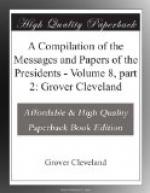the United States, in the execution of process or
otherwise, or who by any of the means before mentioned
hinders or prevents the free attendance and presence
at such places of registration, or at such polls
of election, or full and free access and egress
to and from any such place of registration or poll
of election, or in going to and from any such place
of registration or poll of election, or to and from
any room where any such registration or election
or canvass of votes, or of making any returns or
certificates thereof, may be had, or who molests,
interferes with, removes, or ejects from any such
place of registration or poll of election, or of
canvassing votes cast thereat, or of making returns
or certificates thereof, any supervisor of election,
the marshal or his general or special deputies,
or either of them, or who threatens, or attempts
or offers so to do, or refuses or neglects to aid
and assist any supervisor of election, or the marshal
or his general or special deputies, or either of them,
in the performance of his or their duties, when required
by him or them, or either of them, to give such aid
and assistance, shall be liable to instant arrest
without process, and shall be punished by imprisonment
not more than two years, or by a fine of not more
than $3,000, or by both such fine and imprisonment,
and shall pay the cost of the prosecution.
The Supreme Court of the United States, in the recent case of Ex parte Siebold and others, decided at the October term, 1879, on the question raised in the case as to the constitutionality of the sections of the Revised Statutes above quoted, uses the following language:
These portions of the Revised Statutes are taken from the act commonly known as the enforcement act, approved May 31, 1870, and entitled “An act to enforce the right of citizens of the United States to vote in the several States of this Union, and for other purposes,” and from the supplement to that act, approved February 28, 1871. They relate to elections of members of the House of Representatives, and were an assertion on the part of Congress of a power to pass laws for regulating and superintending said elections and for securing the purity thereof and the rights of citizens to vote thereat peaceably and without molestation.
It must be conceded to be a most important power, and of a fundamental character. In the light of recent history and of the violence, fraud, corruption, and irregularity which have frequently prevailed at such elections, it may easily be conceived that the exertion of the power, if it exists, may be necessary to the stability of our form of government.
The greatest difficulty in coming to a
just conclusion arises
from mistaken notions with regard to the
relations which
subsist between the State and National
Governments. * * *




